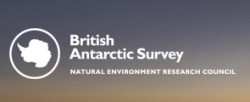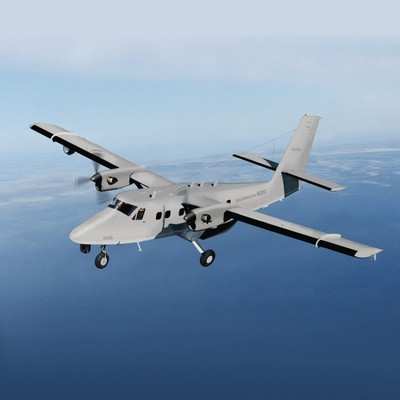Wed, Dec 09, 2009
It's A Different Kind Of Corporate Flying: Polar Scientific
Research
 British Antarctic Survey (BAS) has achieved registration for
the International Standard for Business Aircraft Operations
(IS-BAO). Following a rigorous assessment by the International
Business Aviation Council (IBAC) accreditation was given in
recognition of its safe working practices and procedures when
working in the Antarctic's extreme environment.
British Antarctic Survey (BAS) has achieved registration for
the International Standard for Business Aircraft Operations
(IS-BAO). Following a rigorous assessment by the International
Business Aviation Council (IBAC) accreditation was given in
recognition of its safe working practices and procedures when
working in the Antarctic's extreme environment.
BAS's operating environment is naturally more hazardous than the
normal routine operations of a small corporate aviation unit. The
organization's four de Havilland Twin Otters (DHC6 - 300 series)
and the de Havilland Dash 7 (DHC7 - 110) are used in both
logistical support and as science platforms. For example, the
Dash 7 and one Twin Otter is used extensively for geophysical
surveys. Another of the Twin Otters has sensors fitted on the nose
and wings for studying cloud and weather conditions. Each of these
survey aircraft also have custom fitted large format camera hatches
for aerial photography and mapping purposes.
Iain Tulloch, lead Auditor at IBAC presented BAS with the
registration certificate and congratulated the operations team for
developing exceptional safety and environmental management systems
when working in such challenging conditions. "The success of this
audit was based on the co-operation and transparency of the
organization," he said. "I am extremely impressed with the mature
and comprehensive practical implementation of the safety management
system. Without a sound safety culture even the best systems do not
work, but it is clear that at all levels of the organization there
is a strong commitment to safety when working in the Polar
Regions." Joining the presentation were three BAS scientists who
gave a valuable insight in to the importance of aircraft supported
operations in their scientific fields.

Twn Otter File Photo
BAS Director, Professor Nicholas Owens, welcomed Mr Tulloch's
comments and highlighted the importance of aviation to achieving
effective scientific research both in the Antarctic and the Arctic.
"The benefits of aviation to our work at BAS are countless. If we
had to rely on surface transport alone, there is no doubt that the
scientific research taking place in the Polar Regions would be less
comprehensive. Aviation has and will continue to make an important
contribution to vital scientific research in the Polar Regions, and
I am delighted to receive this important registration under the
International Business Aviation Council (IBAC)."
The International Civil Aviation Organization (ICAO) recently
changed the way in which larger and more complex aircraft should be
operated and governed throughout the world. This was reflected in
changes to the Air Navigation (Overseas Territories) Order that was
published in Jan 2008, and means that BAS works under a new
category with different regulations governing Corporate
Aviation.
More News
Aero Linx: Model Aeronautical Association of Australia MAAA clubs are about fun flying, camaraderie and community. For over 75 years, the MAAA has been Australia’s largest fl>[...]
Touchdown Zone Lighting Two rows of transverse light bars located symmetrically about the runway centerline normally at 100 foot intervals. The basic system extends 3,000 feet alon>[...]
“Discovery and innovation are central to our mission at Virgin Galactic. We’re excited to build on our successful record of facilitating scientific experiments in subor>[...]
How To Get A Story On Aero-TV News/Feature Programming How do I submit a story idea or lead to Aero-TV? If you would like to submit a story idea or lead, please contact Jim Campbel>[...]
Student Pilot Reported That During Rotation, “All Of A Sudden The Back Of The Plane Kicked To The Right..." Analysis: The student pilot reported that during rotation, “>[...]
 ANN's Daily Aero-Linx (05.02.24)
ANN's Daily Aero-Linx (05.02.24) ANN's Daily Aero-Term (05.02.24): Touchdown Zone Lighting
ANN's Daily Aero-Term (05.02.24): Touchdown Zone Lighting Aero-News: Quote of the Day (05.02.24)
Aero-News: Quote of the Day (05.02.24) ANN FAQ: Contributing To Aero-TV
ANN FAQ: Contributing To Aero-TV NTSB Final Report: Cirrus Design Corp SR20
NTSB Final Report: Cirrus Design Corp SR20




